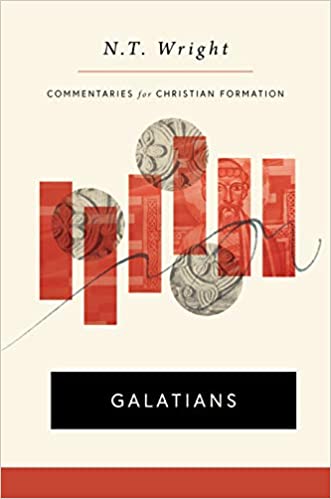Q. It’s pretty clear that you and I disagree about what Paul means by the stoicheia tou kosmou. We do however agree that Paul is not using those terms in the normal meaning they had— namely the elements of the universe— earth, air, fire, water. For me at least we do indeed need to consider the use of stoicheia elsewhere in the NT, in texts either by Paul or possibly influenced by Paul, by which I mean Colossians and Hebrews. It’s quite clear that in Heb. 6 the author is telling the audience not to go back to elementary teachings. There is no hint there of a reference to beings of any sort, divine or otherwise. Similarly, in Colossians 2.8 “See to it that no one takes you captive through hollow and deceptive philosophy, which depends on human tradition and on the stoicheia of this world rather than on Christ” the subject is teachings, in this case philosophical teachings, that are elementary and fundamental in the world in which the Colossians live. Now if we ask what these texts have in common with Gal. 4 it involves the following: 1) in all three there is an issue of dealing with false teachers, especially in Colossians and Galatians, but also in Hebrews; 2) and not surprisingly the warning is against going back to or embracing some kind of elementary teachings that should be left in the past. In Galatians here Paul has already spoken of the paidagogos and now he says that Christ came to redeem those under the Mosaic Law out from under the Mosaic law. I agree with you that Paul is not suggesting that the Law was given by some sort of inferior deity or the like. What he is saying is it is time to move on from the elementary teaching of the Mosaic Law, just like the Gentiles should have moved on from the elementary teachings of their pagan world about a host of things, including teachings about the elements of the universe, about the relationship of those things to the non-gods etc. The context in Gal. 4, Col. 2 and Heb. 6 is pedagogical and involves teaching. In Galatians Paul is urging the Gentiles not to embrace teaching of the Mosaic covenant that Christ had already come to liberate Jews themselves from. Gal. 4.8 can certainly be rendered ‘those things which by nature not being gods’ (after all he is denying that they are beings like gods). He calls them weak and beggarly principles that they should not become enslaved to again. If Paul is indeed drawing an analogy between being enslaved or kept in jail under the Mosaic law (which he obviously doesn’t think of as a being or a deity), does it not make the best sense of all this that he is talking about the former enslavement of Gentiles to their worldviews, their elementary teachings? What is it that you find wrong with this conclusion? Paul wants liberation from the teachings of the past which the coming of Christ has made obsolete. Further, he doesn’t want his Gentile converts to embrace a, for them, new sort of previous teaching— involving circumcision and the Mosaic covenant. As far as I can see, the first clear evidence of using stoicheia to refer to elemental spirits comes in post-NT Christian literature.
A.
I have to refer you to the work of Ernest Clark, referred to in my text! And also the further proposal of Esau McCaulley. Together I think they provide a framework for addressing the old dilemma where it looks as though the Gentiles were under Torah and the Jews were under the stoicheia, which can’t be right. I said in the commentary that I had changed my mind and that I might change it again, though not to the position I started from (which was that the stoicheia were the line-up of tutelary deities of the nations). Clark examined all the uses of stoicheia in ancient Greek. McCaulley ties it in very neatly with Deuteronomy’s warnings about the exilic condition which will follow upon disobedience.














